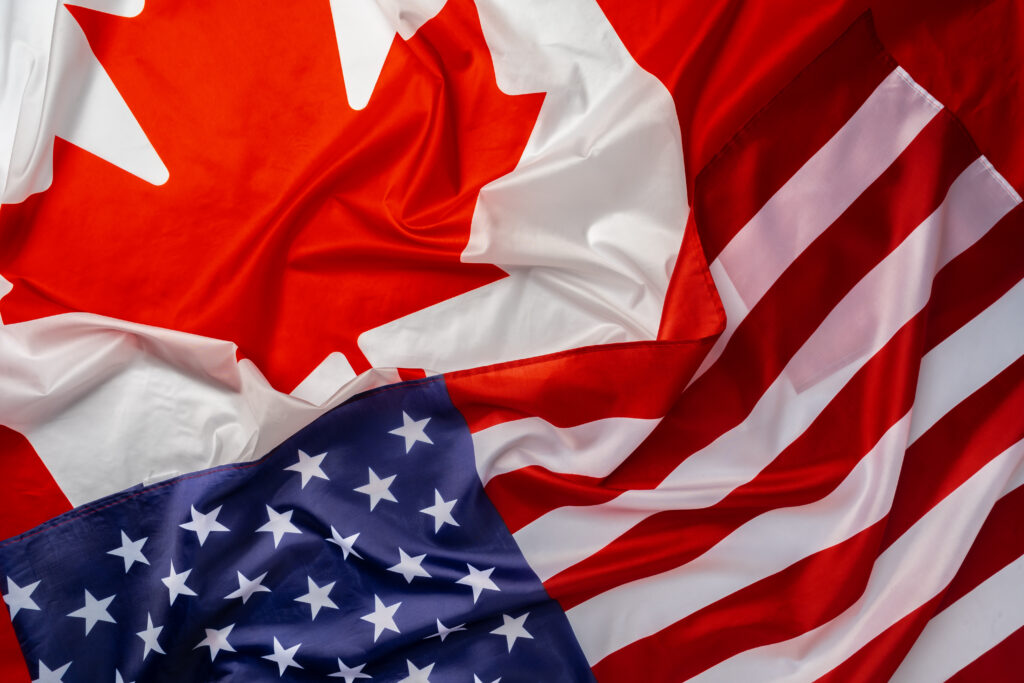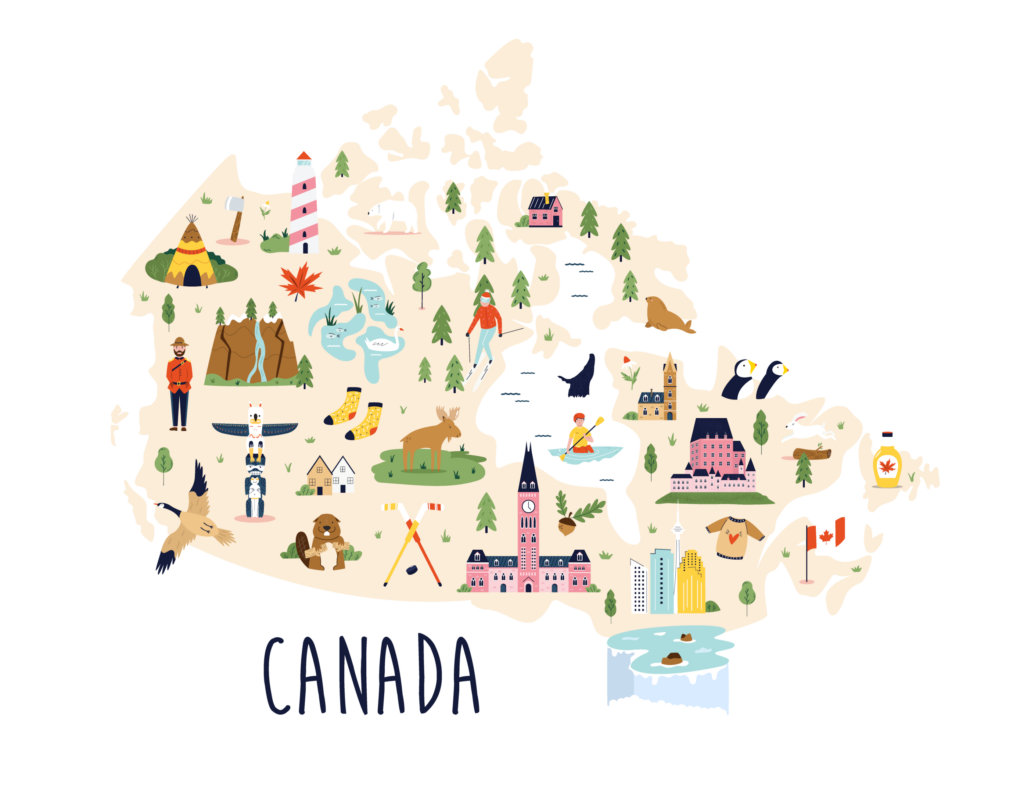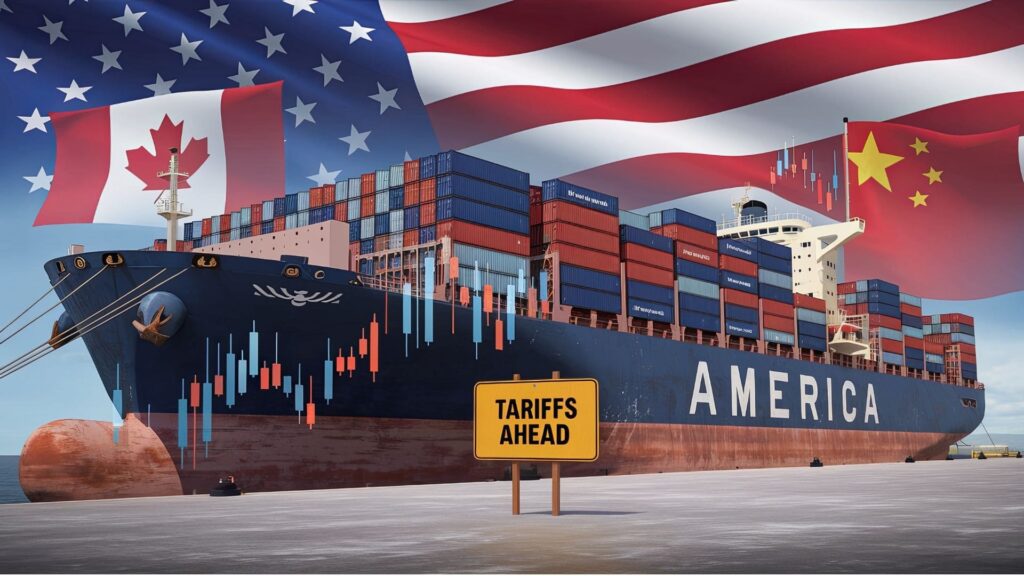Updated: March 19, 2025
Are you an entrepreneur who wants to relocate to North America through investment pathways? If the answer is “yes,” you’ve probably already thought about the “USA or Canada?” dilemma in your search for the best country to live and invest in.
In this article, we want to compare the US “Permanent Residence by Investment” program (EB-5) and the Canadian Entrepreneur pathway (C11). Both programs potentially lead to permanent residence status/Green Card through investment and operating a business. Both the US and Canadian investment programs significantly contribute to their respective economies, with the Canadian economy benefiting from foreign entrepreneurs through property investment and business establishment.

What is the US EB-5 Visa Program and its Minimum Investment?
In the US, the EB-5 program offers immigration options for foreign investors. This investor visa requires you to invest in a new or existing commercial enterprise that creates or preserves at least ten jobs for U.S. workers. Once your EB-5 application is approved, you will receive a conditional temporary residency for two years and become eligible for a Green Card (permanent residence).
Canadian Entrepreneur Program: Canadian Startup Visa Program

Canada, in general, offers more flexibility in business immigration than the US. There are numerous immigration pathways available for foreign business owners.
In Canada, Entrepreneur Streams are immigration programs by Canadian provinces tailored for foreign investors, business owners, and entrepreneurs. Through these streams, you must start a new business or buy an existing one in Canada. Once your work permit application is approved, you will receive a Canadian work permit for two years. You need to run the business for a specified time, and then you can be nominated for permanent residency.
Here are some additional programs that may offer a pathway to permanent residency in Canada:
The Canadian Startup Visa Program is another excellent option for entrepreneurs. This program emphasizes the importance of appointing an authorized representative and securing funding through designated organizations. Compared to the US program, the Canadian Startup Visa Program is known for its flexibility and ease of eligibility, making it an attractive choice for those looking to navigate immigration for entrepreneurship.
Canada Investor Visa Program

The Canada Investor Visa Program is a popular immigration pathway for foreign entrepreneurs and investors seeking to establish a business in Canada. This program offers a unique opportunity to invest in a Canadian business and obtain permanent residency. To qualify, applicants must meet specific criteria, including a minimum net worth set by applicable Canadian province and a minimum investment starting from $100,000 in a Canadian business. This pathway not only facilitates business growth but also opens doors to becoming a permanent resident in Canada.
Canada Investment Visa Process
The Canada Investment Visa process involves several key steps. Initially, applicants must submit an expression of interest (EOI) to the province where they intend to establish their business. Following this, a net worth audit is required to verify the applicant’s financial standing. Once these steps are completed, the applicant can apply for a work permit to enter Canada and start their business operations. The entire process can take between 1.5 to 3 years, depending on the province and specific requirements. Most provinces require applicants to meet minimum language, net worth, management, and work experience criteria, with Saskatchewan being the exception where proof of language is not mandatory.
Application Process and Timeline

The application process for the Canada Investor Visa Program (officially known as Provincial Nominee Programs for Entrepreneurs) typically involves the following steps:
-
Submit an Expression of Interest (EOI): Indicate your interest in the province where you plan to establish your business.
-
Net Worth Audit & Other Documentation: Obtain an audit to demonstrate your minimum net worth set by the province.
-
Apply for a Work Permit: Secure a work permit to enter Canada and begin your business operations.
-
Meet Provincial Requirements: Fulfill the minimum language, net worth, management, and work experience requirements specific to the province.
-
Processing Time: Wait for the processing of your application, which can take anywhere from 1.5 to 3 years.
By following these steps, applicants can navigate the Canada Investor Visa process and work towards establishing their business in Canada.
Read more about Investor and Entrepreneur Stream in Alberta, Nova Scotia and British Columbia.
Costs and Fees
The costs and fees associated with the Canada Investor Visa Program include several components:
-
Minimum Investment: $200,000 in a Canadian business.
-
Net Worth Audit Fees: Ranging from $5,000 to $10,000.
-
Work Permit Fees: Between $1,000 to $2,000.
-
Provincial Fees: Varying from $1,000 to $5,000.
-
Immigration Lawyer Fees: Typically between $5,000 to $10,000.
These costs are essential to consider when planning your investment and immigration journey to Canada.
Path to Canadian Citizenship

The Canada Investor Visa Program offers a clear pathway to Canadian citizenship for successful applicants. To be eligible for citizenship, applicants must:
-
Residency Requirements: Reside in Canada for at least 1,095 days within the 5 years preceding the application.
-
Language Proficiency: Pass a language proficiency test in English or French.
-
Citizenship Test: Successfully complete a citizenship test.
-
Good Character: Meet the good character requirements.
-
Oath of Citizenship: Take the Oath of Citizenship.
By meeting these requirements, foreign entrepreneurs and investors can transition from permanent residency to becoming Canadian citizens, enjoying the full benefits and opportunities that come with Canadian citizenship.
So, US or Canada for Permanent Residence by Investment?
The US EB5 Program and Canada’s Entrepreneur streams are not the same. They offer the same result – permanent residency. However, the entire process differs dramatically! Canadian Entrepreneur stream (C11) seems to provide more flexibility to foreign entrepreneurs, investors, and companies and a faster and smoother process.
A key component of the EB-5 visa initiative is the Regional Center Program, established by Congress to facilitate foreign investment in U.S. commercial enterprises linked to authorized regional centers. This program plays a crucial role in promoting economic growth and job creation.
| USA (EB-5) | Canada (C11) | |
|---|---|---|
| Investment Amount | From $800,000 USD to $1,050,000 USD | No minimum investment, but recommended minimum amount – $250,000 CAD |
| Job Creation | at least 10 jobs | 2+ |
| Processing Times | Stage 1: at least 18-29 months | 3 weeks – 4 months |
| Family Members (spouse and children) | Eligible to join the principal applicant | Spouse: eligible to get a work permit; Children: free schooling (not post-secondary education) |
| Time to Permanent Residency | 4+ years | 2+ years |
| English/French Language | Not required | May be required |

Things to Consider: Canada vs US Immigration
Although Canada’s Entrepreneur stream has many advantages over the American EB-5 program, you should also consider other important factors that may affect your decision to immigrate to Canada or the US.
Canadian businesses face challenges due to new tax regulations and economic conditions, including increased capital gains taxes, which could limit opportunities for growth and hinder the success of businesses in Canada.
In Canada, the average yearly university tuition is CAD $6,700. On the other hand, in the US it is USD $10,230 for state residents and USD $26,290 for out-of-state students. Also, private non-profit colleges on average cost USD $35,830 a year.

How Does Business Immigration Work?
Regardless of whether you are applying for an EB5 Visa or an Entrepreneur Visa, navigating the immigration process is a crucial part of business immigration in both countries. You will have to invest in a business in a country that you are planning to immigrate to. You may choose to invest in an existing business, start a brand new one, or perhaps bring the business from your home country to Canada or the US. Not all business immigration paths are the same, though, and it is crucial to consider all of the details.
- Canada: There are no official investment requirements set by the government for the Entrepreneur Visa. However, you should have at least CAD $250,000 to invest into Canadian business and approximately CAD $100,000 for operating expenses during the initial year.
- USA: The amount can vary between USD $1,800,000 and USD $900,000. The lower amount of investment is only applicable to Targeted Employment Areas.
- Canada: You can expect your Entrepreneur Visa application to be reviewed in around 90 days. This time may change slightly depending on the workload of the IRCC.
- USA: The EB-5 Visa generally takes between 30 and 60 months to review, which is another reason why some choose not to apply.
- Canada: The Entrepreneur Visa does not require you to create new jobs per se. Though you are required to show that your investment can create a “significant benefit” for the economy and the community. You can achieve this, amongst other ways, by creating a few job opportunities.
- USA: On the other hand, the EB5 Visa requires you to create at least 10 full-time positions for domestic residents. This requirement can add quite a lot to your already high investment amount.








